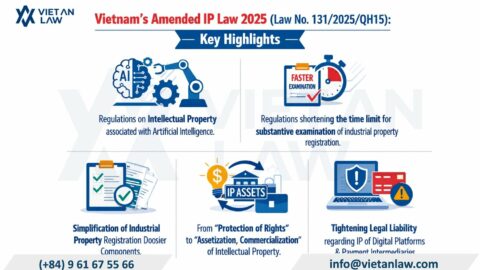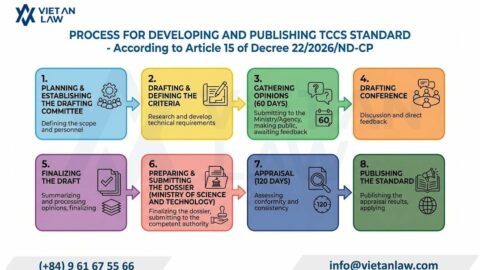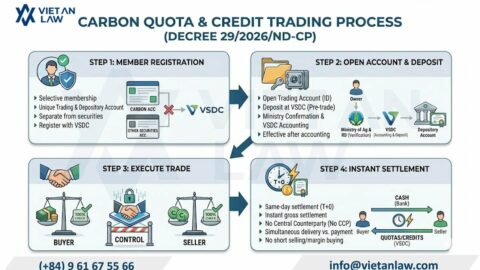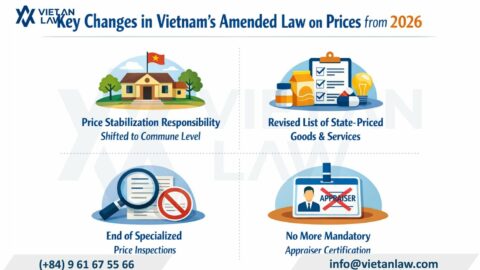In recent years, Financial Technology (fintech) has become a rapidly growing field. Fintech is the combination and application of modern technical technologies in the provision and use of financial services, gradually changing the way people, enterprises, and traditional financial institutions transact and manage their finances. Below, Viet An Law will analyze the financial technology (Fintech) regime in Vietnam.
Table of contents
In recent years, the Fintech market in Vietnam has grown very strongly in terms of quantity, diversity of products, services, and investment capital attraction. The revenue of this market reached 4.4 billion USD in transaction value in 2017 and reached about 7.8 billion USD in 2020, equivalent to an increase of 77% within 03 years. The number of Fintech companies in Vietnam has also increased rapidly, from about 40 companies at the end of 2013 to about 176 companies at the end of 2022, and is estimated to increase in the coming years.
Vietnam’s Fintech market in a broad sense includes Fintech activities in the following main groups:
Fintech helps users make quick and convenient online payments through e-wallets, online bank transfers, services such as PayPal, Venmo, or payment applications such as Momo, ZaloPay in Vietnam.
The peer-to-peer lending model (P2P Lending) has also developed in Vietnam in recent years, with the emergence of companies operating in the same model since 2016 with the website huydong.com. P2P Lending is a modern lending model on a digital technology platform, where borrowers and lenders (investors) will be connected directly to each other without having to go through any traditional credit institutions or banks.
By the end of 2022, there will be 16 FinTech companies in the asset management sector operating in Vietnam. Fintech uses algorithms and artificial intelligence (AI) to provide investment advice and manage investment portfolios automatically.
The Insurtech field in Vietnam is still quite young but has made remarkable progress in recent times. Technology is used in the insurance industry to improve contract management, risk assessment, and insurance claim settlement processes.
Fintech provides platforms for trading cryptocurrencies (e.g. Bitcoin, Ethereum), using blockchain to record transactions and improve transparency and security.
Currently, the legal framework on fintech includes the Law on Credit Institutions 2024 and Decree 52/2024/ND-CP. In particular, the Law on Credit Institutions 2024 stipulates:
“Article 106. Regulatory sandbox in the banking sector
Thus, the Law on Credit Institutions 2024 only provides general regulations on regulatory sandbox in banking sector but does not have specific regulations on the legal framework on fintech (Financial Technology) in Vietnam.
In addition, Decree 52/2024/ND-CP regulating non-cash payment activities does not directly regulate fintech, but many new contents regulate non-cash payment activities, including opening and using payment accounts; non-cash payment services; and payment intermediary services.
Currently, the Government is seeking comments on the second draft of the Decree regulating the regulatory sandbox in the banking sector, which includes some provisions on fintech as follows:
Financial technology solutions (Fintech solutions) in the banking sector are creative and modern innovations in financial services based on technology applications applied in the banking sector.
A financial technology company (Fintech company) is an organization that is not a credit institution or a foreign bank branch, having a license to establish or legally register to do business in Vietnam, independently providing Fintech solutions or through cooperation with credit institutions or foreign bank branches to provide Fintech solutions to the market.
Pursuant to Article 7 of the Draft Decree on Controlled Testing Mechanism in the Banking Sector, Fintech solutions in the banking sector are allowed to be tested in the Testing Mechanism in the following areas:
Pursuant to Article 7 of the Draft Decree, a Fintech company is considered for a Certificate of participation in the Testing Mechanism when it meets the following conditions and criteria:
Accordingly, the State Bank is the focal agency to receive registration dossiers to participate in the Testing Mechanism and issue Certificates of participation in the Testing Mechanism.
The draft Decree regulating the Controlled testing mechanism in the banking sector is still in the process of collecting opinions for approval and promulgation. If this regulation is approved, it will provide a specific and clear legal framework for fintech (Financial Technology) in Vietnam, which is an important factor to promote the development of this sector in the future.
Above is an update of some information about the financial technology (fintech) regime in Vietnam. If you have any related questions, please contact Viet An Law for the best advice and support!




